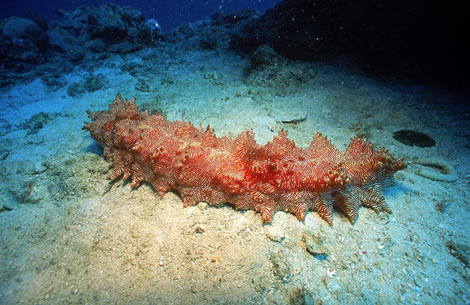Malaria, the deadly killer which kills more then one million and cause illness to almost 500 million people each year worldwide, can be dealt with the help of sea cucumbers. We do have cures for malaria but as per Professor Sanjeev Krishna, an expert in malaria at St George’s Hospital Medical School, London, the parasites has been slowly developing resistance to the artemisinin drugs being used. Researchers are now counting on sea cucumbers as the possible new weapon in helping block the transmission of the disease.
As per the study, Lectin, a protein is dangerous for the growth of these parasites when they are in initial stages of development, also known as ookinete. The ookinetes actually migrate through the mosquito’s stomach wall into human body while it bites. Later they produce thousands of daughter cells, which finally infects the salivary glands. But when ookinetes come in contact with Lectin, they become dead and sea cucumbers produce this powerful Lectin. Thus the researchers experimented by introducing a part of the gene from the sea cucumber to a gene from the insect, which deadened the ookinetes in the mosquito’s stomach only.
However, researchers agree that a lot of research and work is yet to be done before the technique can be actually put to use. Professor Bob Sinden. part of the research said,
These results are very promising and show that genetically engineering mosquitoes in this way has a clear impact on the parasites’ ability to multiply inside the mosquito host. Although the sea cucumber protein significantly reduced the number of parasites in mosquitoes, it did not totally remove them from all insects. At the current stage of development, the genetically modified mosquitoes would remain dangerous to humans. Ultimately, one aim of our field is to find a way of genetically engineering mosquitoes so that the malaria parasite cannot develop inside them. This is a very important first step in developing a potential new way to control this infection.
Emphasizing on the second side of the same coin, Dr Ron Behrens from London School of Hygiene and Tropical Medicine said,
You would have to get the modified version to become the predominant species, and that has never been done in any setting before.
After all, science is the most disputed subject.
Source: BBC
Image credit: Nationalgeographic




